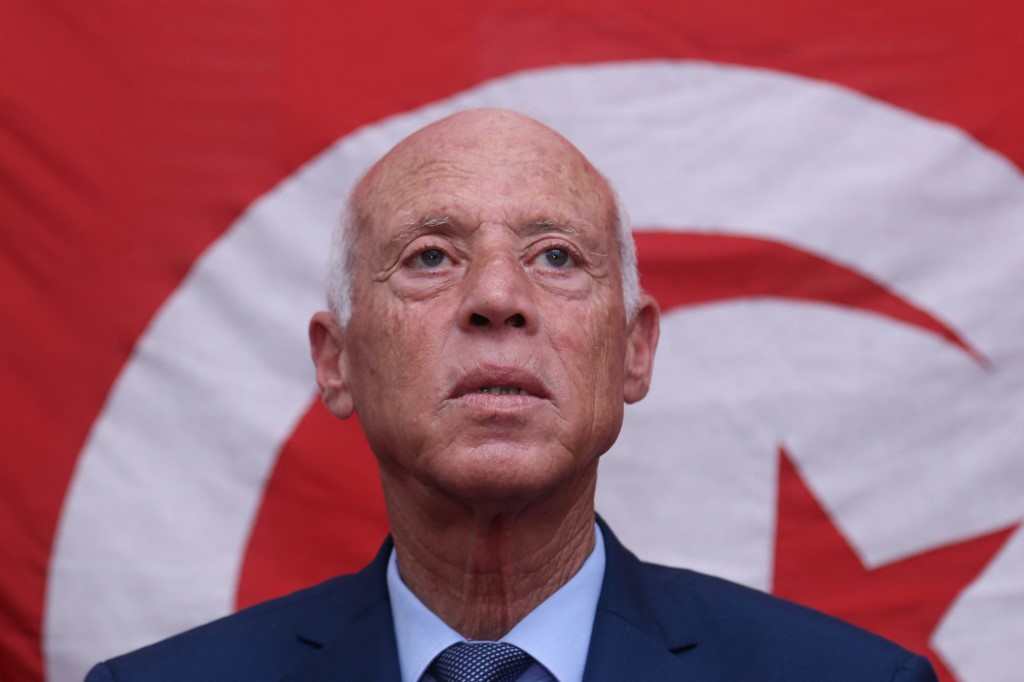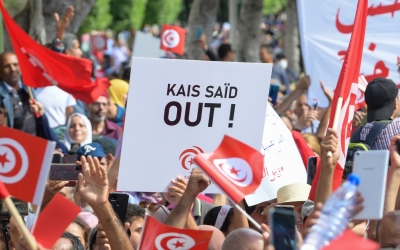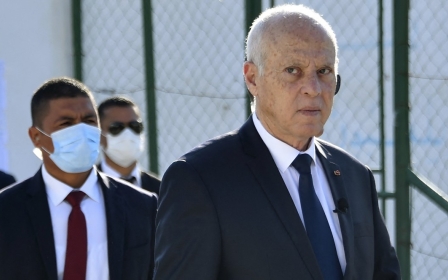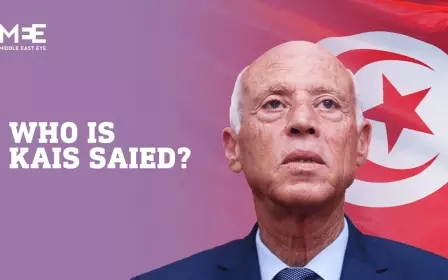Tunisia: Why taxing the informal economy will not boost the country's finances
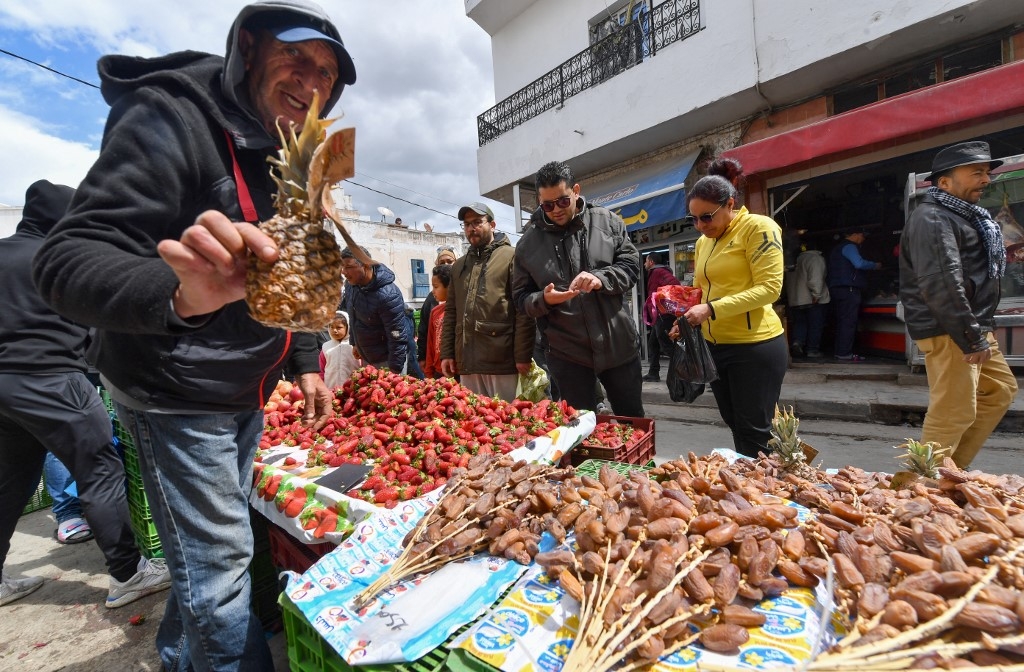
There is perhaps no other country where the design of economic reform as a negotiation process between labour and international capital is as visible as in Tunisia.
After months of parallel talks with labour unions and the IMF throughout a rapidly escalating economic crisis, Tunisia’s government achieved a staff-level agreement with the IMF on 15 October.
The agreement on a 48-month arrangement under the extended fund facility of about $1.9bn is preliminary and still needs to be approved by the IMF executive board. However, the agreement is as of now the most concrete indication of the direction of Tunisia’s economic reform programme under President Kais Saied.
Much of what is in the agreement is broadly in line with what many observers had suspected and has been included in IMF agreements in the past with Tunisia and more widely across lower- and middle-income countries.
That is: shrinking the civil service wage bill, cutting subsidies, streamlining investment incentives, and increasing transparency in the public sector.
These will no doubt dominate the discussions around reform over the coming weeks and present key challenges to the programme’s political viability in Tunisia, given the country’s imminent cost of living crisis and fear of cuts in services and support.
However, one surprise in the agreement is the very first point listed as part of the reform programme. Specifically, the promises that the programme will improve “tax equity by taking steps to bring the informal sector into the tax net and broadening the tax base to ensure equitable contributions from all professions”.
It is a point that bears great promise - and even greater unstated risks.
There is no doubt that taxation should be a key part of any economic reform framework in Tunisia. Greater tax revenues would provide an avenue to greater economic self-determination for the country and a lever for supporting equity and redistribution that has been underused in recent years.
Undeniably, improving the equity of the tax system is an important ambition. Doing so through taxing the informal sector, however, is unlikely to achieve this goal.
Flawed logic
Taxing the informal sector has become an increasingly popular policy talking point in Africa in recent years, often driven by promises of large pockets of untapped revenue and a feeling that it’s unfair to formal businesses for informal ones to be untaxed.
But it is built on flawed logic and little evidence. Practical attempts to tax the informal sector often result in small, if any, revenue gains, while disproportionately hitting the poorest and most economically vulnerable in society. Tunisia would do well to avoid falling into this policy trap.
Attention to the informal sector in Tunisia has been prominent in public discourse since Mohamed Bouazizi, an informal vendor in Sidi Bouzid, set himself on fire in late 2010 and became a martyr and symbol of the 2011 revolution.
Practical attempts to tax the informal sector often result in small, if any, revenue gains, while disproportionately hitting the poorest and most economically vulnerable in society
The International Labour Office (ILO) estimates that over half of Tunisian workers are employed informally, while some estimate that informal economic activity makes up almost 40 percent of the country's GDP.
So it is easy to see why some might suggest that there is big revenue potential by bringing the sector “into the tax net”, as it is often phrased. However, this overlooks two key problems.
First, taxing the informal economy is not as lucrative as it sounds. While the informal sector is large, it includes a huge diversity of economic activities: everything from smugglers to street vendors to professionals such as lawyers and dentists, and larger businesses that have not fully declared all their incomes.
Clearly, there is considerable variation in the revenue potential across sectors and not one strategy to tax them all. For anyone that has walked through the country’s informal markets or frippe stalls, it doesn’t take much to imagine that many informal workers operate below tax thresholds, making them ineligible to pay tax even if they were formally registered with the government.
Meanwhile, more lucrative sectors often have ample means to avoid taxation, with greater access to accountants and lawyers - and often greater political connections.
Massive efforts
Estimates about the revenue potential of taxing the informal economy also often fail to account for the revenue collection costs of bringing informal workers into the tax net, which can make revenue collection inefficient. Registration drives to capture informal workers for tax purposes often require massive efforts on the part of revenue authorities, though frequently resulting in nothing more than bloated tax registries.
Being able to report to the public - and, importantly, to the IMF - that there are 10,000 newly registered taxpayers, seems compelling. However, being registered with a tax authority does not automatically lead to tax payments. It is estimated that more than half of taxpayers registered with African national tax administrations do not pay taxes at all.
Second, taxing the informal economy typically undermines tax equity, instead of improving it. Common strategies to tax the informal sector often disproportionately hit the poorest. In part, this is because poor informal businesses are often more visible (think of the market vendor on the street versus the lawyer working from their home office), with fewer options for evasion and a smaller Rolodex of political or governmental connections.
At the same time, the assumption that taxing informal workers will lead to greater equity in the tax system fails to recognise that many in the informal economy already face a high fiscal burden, rather than being untaxed or “tax evaders”, as they are often described.
Many municipalities in Tunisia already tax informal businesses and vendors through a range of tools, such as market fees or fees for the "commercial use of public space". With a lack of access to reliable public services and social protection, informal businesses also have to make other payments to formal and informal actors in order to operate.
In this way, targeting the informal sector risks overtaxing those already operating on the margins.
'Services first' approach
None of this is to say that addressing informality in Tunisia shouldn’t be a priority. Rather than starting with taxing the informal sector, however, a "services first" approach may be more effective in decreasing informality in the long run. Informal workers in Tunisia desperately need social protection.
The IMF agreement includes a proposal to “strengthen the social safety net”, though it’s not clear if or how this will target informal workers.
We know that providing social protection to informal workers is often challenging, as they may not show up on existing government registries of vulnerability, but it is a critical step to addressing both economic vulnerability and inequity.
All evidence suggests that taxing the informal sector, in general, is not the way to “improve tax equity”, as the staff-level IMF agreement puts it. Instead, it risks putting further burdens on those who have been struggling to get by.
Targeting high-income individuals who are operating informally, including professionals and large businesses, will have more positive equity outcomes, and more revenue potential.
More basically, focusing taxation on wealth and property is a more straightforward and evidence-based way to increase revenues and improve equity, and would go a long way to “create fiscal space for social support” and ensure “equitable contributions from all professions”, as desired by signatories to the agreement.
A new engagement of the Tunisian state with its informal workforce is desirable - but a new tax bill is a poor start to this conversation.
The authors lead a research programme on taxation and informality at the International Centre for Tax and Development. A policy brief on the issue of taxing the informal economy is available here.
The views expressed in this article belong to the author and do not necessarily reflect the editorial policy of Middle East Eye.
This article is available in French on Middle East Eye French edition.
Middle East Eye delivers independent and unrivalled coverage and analysis of the Middle East, North Africa and beyond. To learn more about republishing this content and the associated fees, please fill out this form. More about MEE can be found here.



